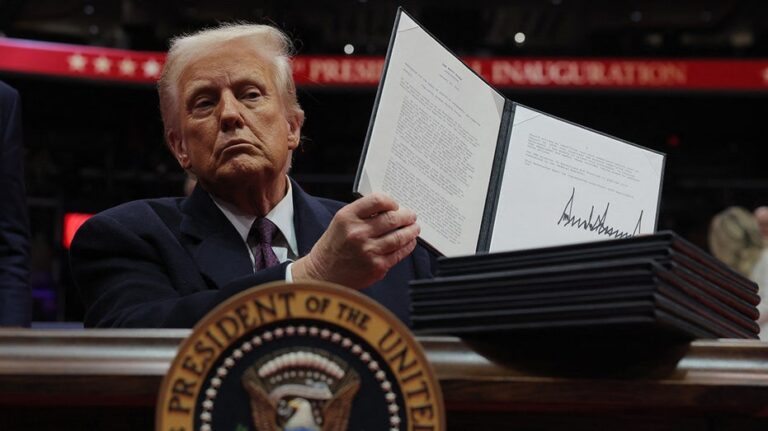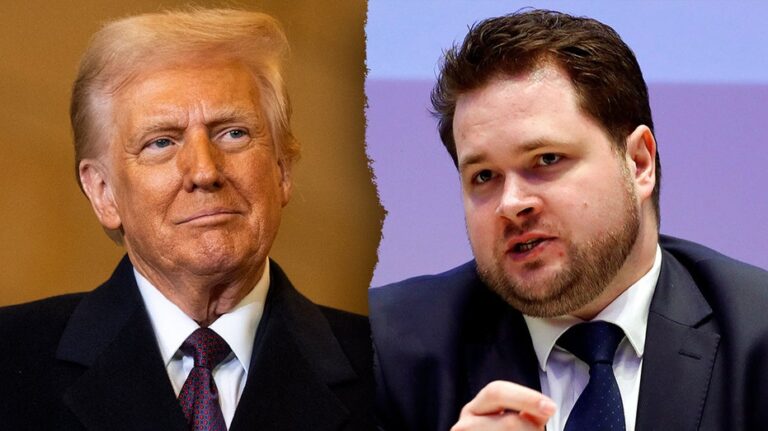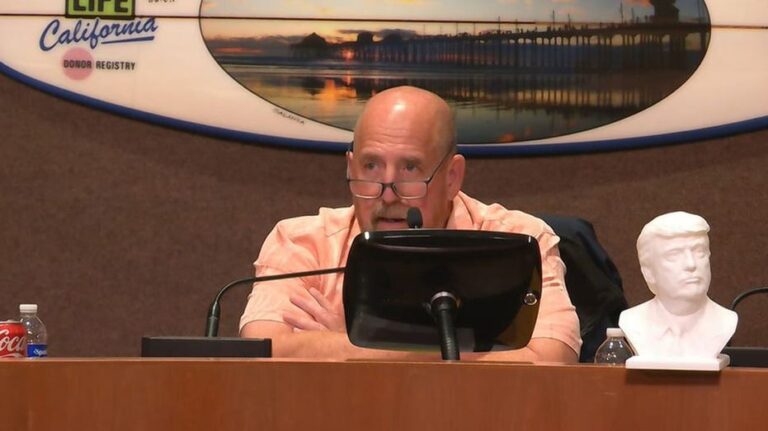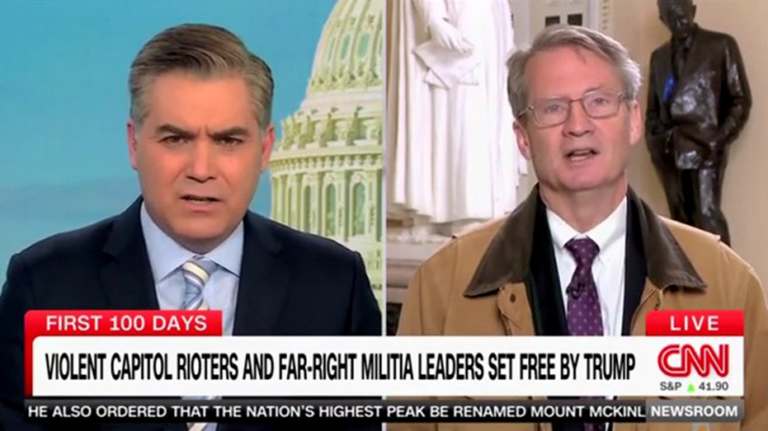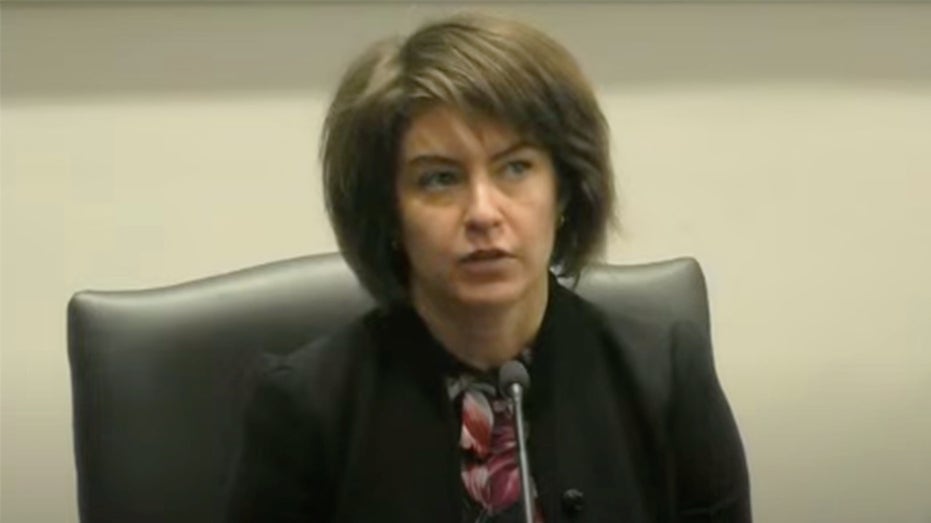
CNN Senior Director for Standards and Practices Emma Lacey-Bordeaux defended the controversial report at the center of a high-stakes defamation trial on Wednesday when called to the witness stand.
Zachary Young, a U.S. Navy veteran, alleges CNN smeared him in a November 2021 report by correspondent Alex Marquardt that first aired on “The Lead with Jake Tapper,” suggesting he illegally profited off desperate people trying to flee Afghanistan following the Biden administration’s military withdrawal, implying he was involved in “black market” dealings and ruining his professional reputation as a result.
Lacey-Bordeaux, who has worked at CNN since 2008, testified that it’s her job to ensure CNN content is fair. The network’s lead counsel David Axelrod asked her if the report at the center of the defamation lawsuit was “accurate” and “fair” to Young.
“It is,” Lacey-Bordeaux said. “I think the piece is fair to Mr. Young.”
Once Axelrod was finished, Young’s lead counsel Vel Freedman took over for cross-examination. After a few questions about her journalism background, Freedman began grilling Lacey-Bordeaux about CNN’s standards and practices policies, which Lacey-Bordeaux testified that was “mandatory” reading for all employees.
Freedman showed the jury a document that said the “mission of CNN’s News Standards and Practices is to ensure that the on-air and online reports and programs of CNN are accurate, fair and responsible.”
Freedman pointed out how policy states CNN’s fact-checking apparatus dubbed the “Triad” should always be “alerted early in the process, preferably weeks or months ahead, not just a few days before air.” However, Lacey-Bordeaux confirmed she only received the script at the center of the lawsuit the day before the report aired on CNN.
“I felt that I had plenty of time to review the piece,” Lacey-Bordeaux said.
While Lacey-Bordeaux felt she had ample time to review the piece, Young insisted he did not have enough time to tell his side of the story.
According to messages previously shown to the jury, Young had repeatedly told Marquardt that two hours was not enough time to answer a series of questions. Marquardt insisted he had already called and reached out on LinkedIn the prior week, but Young testified he was not contacted by Marquardt. The CNN correspondent then gave Young only two hours to respond to a series of questions.
“That’s definitely not a realistic deadline. In any case, I can tell you for sure, some of your facts/assertions are not accurate, and if they are published, I will seek legal damages,” Young responded to Marquardt.
Marquardt moved forward with the story anyway.
Lacey-Bordeaux initially called Young’s two-hour deadline to respond “sharp,” but testified she changed her mind after Marquardt provided context. She also admitted that she didn’t review CNN’s communications with Young before the report aired.
Freedman showed her internal messages between CNN employees in which reporter Katie Bo Lillis asked Young to talk but failed to disclose that he was the subject of a story.
“This is the first time I’m seeing this chain,” Lacey-Bordeaux said.
Freedman then noted that Marquardt had already declared Young was “gonna be on CNN,” but Lacey-Bordeaux insisted the exchange appeared “casual” and reiterated that the finished product was “fair.”
Lacey-Bordeaux took a long pause when asked if the fact that there are no records of a missed call from Marquardt would have impacted the two-hour window provided to Young. After thinking about it, she told jurors that two hours was enough time.
Freedman then showed Lacey-Bordeaux footage of Marquardt playfully calling the controversial phone call “theater,” which was revealed earlier in the week when behind-the-scenes footage of the alleged call was played for the jury. Freedman has suggested Marquardt didn’t actually call Young, but the CNN reporter insists he did. Marquardt dismissed the “theater” line as a reference to an old “Saturday Night Live” sketch.
After watching the video, Lacey-Bordeaux rejected Freedman’s notion that CNN “treats its news as theater.”
The testimony then pivoted to the infamous “black market” chyron that was used for much of the report. CNN aired an apology to Young in March 2022 that focused on the “black market” term.
“We did not intend to suggest that Mr. Young participated in the black market,” CNN anchor Pamela Brown told viewers as part of the apology. “We regret the error, and to Mr. Young, we apologize.”
Despite CNN’s apology, many staffers have testified that they don’t feel it was necessary and have essentially doubled down on the initial report. Lacey-Bordeaux was on the same page as many of her colleagues who previously testified, insisting the story was “fair” despite the network offering an apology.
Lacey-Bordeaux also testified that she never asked to see banners for the segment because she was comfortable with the report. Therefore, she never approved the “black market” chyron.
A juror submitted a written statement suggesting banners should be fact-checked along with the rest of CNN content. Lacey-Bordeaux acknowledged that the juror made a valid point but reiterated her trust in the story.
The trial resumes on Thursday and will be streamed live on Fox News Digital.
CNN Senior Director for Standards and Practices Emma Lacey-Bordeaux defended the controversial report at the center of a high-stakes defamation trial on Wednesday when called to the witness stand.
Zachary Young, a U.S. Navy veteran, alleges CNN smeared him in a November 2021 report by correspondent Alex Marquardt that first aired on “The Lead with Jake Tapper,” suggesting he illegally profited off desperate people trying to flee Afghanistan following the Biden administration’s military withdrawal, implying he was involved in “black market” dealings and ruining his professional reputation as a result.
Lacey-Bordeaux, who has worked at CNN since 2008, testified that it’s her job to ensure CNN content is fair. The network’s lead counsel David Axelrod asked her if the report at the center of the defamation lawsuit was “accurate” and “fair” to Young.
“It is,” Lacey-Bordeaux said. “I think the piece is fair to Mr. Young.”
Once Axelrod was finished, Young’s lead counsel Vel Freedman took over for cross-examination. After a few questions about her journalism background, Freedman began grilling Lacey-Bordeaux about CNN’s standards and practices policies, which Lacey-Bordeaux testified that was “mandatory” reading for all employees.
Freedman showed the jury a document that said the “mission of CNN’s News Standards and Practices is to ensure that the on-air and online reports and programs of CNN are accurate, fair and responsible.”
Freedman pointed out how policy states CNN’s fact-checking apparatus dubbed the “Triad” should always be “alerted early in the process, preferably weeks or months ahead, not just a few days before air.” However, Lacey-Bordeaux confirmed she only received the script at the center of the lawsuit the day before the report aired on CNN.
“I felt that I had plenty of time to review the piece,” Lacey-Bordeaux said.
While Lacey-Bordeaux felt she had ample time to review the piece, Young insisted he did not have enough time to tell his side of the story.
According to messages previously shown to the jury, Young had repeatedly told Marquardt that two hours was not enough time to answer a series of questions. Marquardt insisted he had already called and reached out on LinkedIn the prior week, but Young testified he was not contacted by Marquardt. The CNN correspondent then gave Young only two hours to respond to a series of questions.
“That’s definitely not a realistic deadline. In any case, I can tell you for sure, some of your facts/assertions are not accurate, and if they are published, I will seek legal damages,” Young responded to Marquardt.
Marquardt moved forward with the story anyway.
Lacey-Bordeaux initially called Young’s two-hour deadline to respond “sharp,” but testified she changed her mind after Marquardt provided context. She also admitted that she didn’t review CNN’s communications with Young before the report aired.
Freedman showed her internal messages between CNN employees in which reporter Katie Bo Lillis asked Young to talk but failed to disclose that he was the subject of a story.
“This is the first time I’m seeing this chain,” Lacey-Bordeaux said.
Freedman then noted that Marquardt had already declared Young was “gonna be on CNN,” but Lacey-Bordeaux insisted the exchange appeared “casual” and reiterated that the finished product was “fair.”
Lacey-Bordeaux took a long pause when asked if the fact that there are no records of a missed call from Marquardt would have impacted the two-hour window provided to Young. After thinking about it, she told jurors that two hours was enough time.
Freedman then showed Lacey-Bordeaux footage of Marquardt playfully calling the controversial phone call “theater,” which was revealed earlier in the week when behind-the-scenes footage of the alleged call was played for the jury. Freedman has suggested Marquardt didn’t actually call Young, but the CNN reporter insists he did. Marquardt dismissed the “theater” line as a reference to an old “Saturday Night Live” sketch.
After watching the video, Lacey-Bordeaux rejected Freedman’s notion that CNN “treats its news as theater.”
The testimony then pivoted to the infamous “black market” chyron that was used for much of the report. CNN aired an apology to Young in March 2022 that focused on the “black market” term.
“We did not intend to suggest that Mr. Young participated in the black market,” CNN anchor Pamela Brown told viewers as part of the apology. “We regret the error, and to Mr. Young, we apologize.”
Despite CNN’s apology, many staffers have testified that they don’t feel it was necessary and have essentially doubled down on the initial report. Lacey-Bordeaux was on the same page as many of her colleagues who previously testified, insisting the story was “fair” despite the network offering an apology.
Lacey-Bordeaux also testified that she never asked to see banners for the segment because she was comfortable with the report. Therefore, she never approved the “black market” chyron.
A juror submitted a written statement suggesting banners should be fact-checked along with the rest of CNN content. Lacey-Bordeaux acknowledged that the juror made a valid point but reiterated her trust in the story.
The trial resumes on Thursday and will be streamed live on Fox News Digital.
